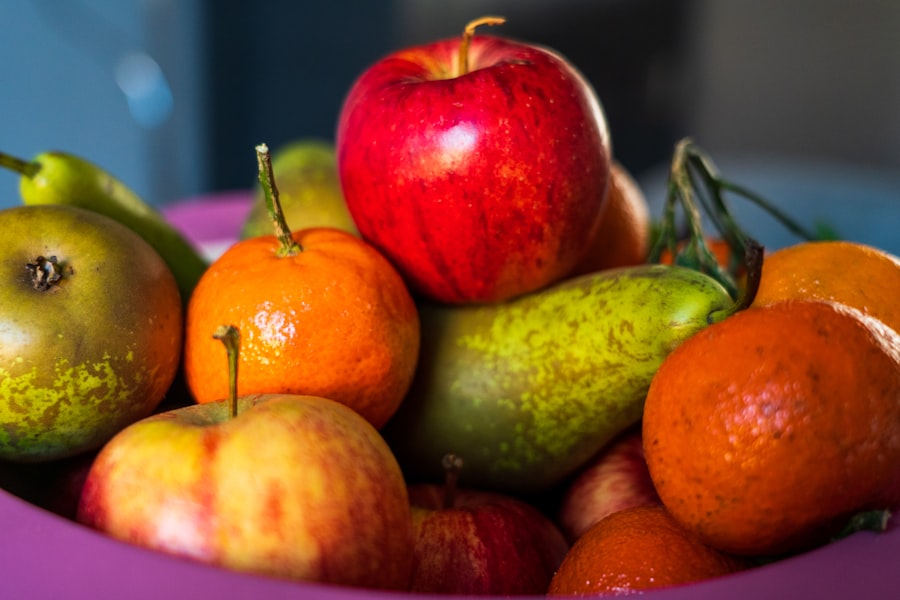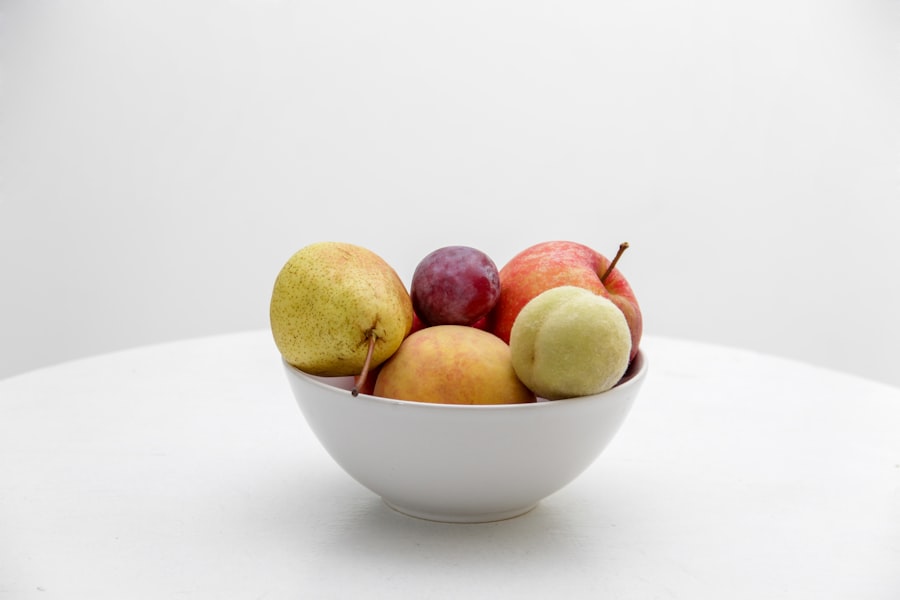For individuals managing diabetes, the significance of healthy snacking cannot be overstated. Snacks serve as a bridge between meals, helping to maintain stable blood sugar levels and prevent extreme fluctuations that can lead to complications. When blood sugar dips too low, it can result in symptoms such as dizziness, fatigue, and irritability.
Conversely, high blood sugar levels can lead to long-term health issues, including cardiovascular disease and nerve damage. Therefore, incorporating healthy snacks into a daily routine is essential for maintaining optimal glucose control. Moreover, healthy snacks can play a pivotal role in overall dietary management.
They provide an opportunity to include nutrient-dense foods that may be lacking in main meals. For instance, a well-planned snack can introduce additional vitamins, minerals, and fiber into the diet, all of which are crucial for overall health and well-being. By choosing snacks wisely, individuals with diabetes can not only satisfy hunger but also support their metabolic health and enhance their quality of life.
Key Takeaways
- Healthy snacks play a crucial role in diabetes management by helping to stabilize blood sugar levels and prevent overeating during meals.
- Snacks can help control blood sugar levels by providing a steady source of energy and preventing spikes and crashes in glucose levels.
- Choosing the right snacks for diabetes involves selecting options that are low in added sugars, high in fiber, and rich in nutrients such as vitamins and minerals.
- Nutrient-rich snack options for diabetes management include fruits, vegetables, nuts, seeds, and low-fat dairy products that provide essential nutrients without causing rapid blood sugar spikes.
- Portion control is important when snacking for diabetes, and incorporating fiber-rich, protein-packed, and healthy fat snacks can help manage hunger and prevent overeating.
The Role of Snacks in Blood Sugar Control
Snacks can significantly influence blood sugar levels, acting as a tool for both prevention and management of hyperglycemia and hypoglycemia. When chosen thoughtfully, snacks can help maintain steady glucose levels throughout the day. For example, consuming a small snack that combines carbohydrates with protein or healthy fats can slow down the absorption of glucose into the bloodstream.
This balanced approach helps to prevent spikes in blood sugar that often occur after consuming high-carbohydrate foods alone. Additionally, the timing of snacks is crucial in diabetes management. For those on insulin or other glucose-lowering medications, strategic snacking can help mitigate the risk of hypoglycemia, especially during periods of increased physical activity or when meals are delayed.
By planning snacks around medication schedules and physical activity, individuals can better manage their blood sugar levels and reduce the likelihood of experiencing adverse effects.
Choosing the Right Snacks for Diabetes

Selecting the right snacks is fundamental for effective diabetes management. The ideal snack should be low in added sugars and refined carbohydrates while being rich in nutrients. Whole foods such as fruits, vegetables, nuts, seeds, and whole grains are excellent choices.
For instance, a small apple paired with a tablespoon of almond butter provides a satisfying combination of fiber and healthy fats that can help stabilize blood sugar levels. It is also essential to consider portion sizes when choosing snacks. Even healthy options can contribute to excessive calorie intake if consumed in large quantities.
Reading nutrition labels and being mindful of serving sizes can help individuals make informed choices that align with their dietary goals. Additionally, keeping a variety of healthy snacks on hand can prevent impulsive eating of less nutritious options when hunger strikes.
Nutrient-Rich Snack Options for Diabetes Management
| Snack Option | Calories | Carbohydrates (g) | Fiber (g) | Protein (g) |
|---|---|---|---|---|
| Almonds (1 oz) | 164 | 6 | 3.5 | 6 |
| Greek Yogurt (6 oz) | 100 | 7 | 0 | 17 |
| Hard-boiled Eggs (2 large) | 140 | 1 | 0 | 13 |
| Celery Sticks with Peanut Butter (2 tbsp) | 200 | 8 | 2 | 8 |
Nutrient-rich snacks are vital for individuals with diabetes as they provide essential vitamins and minerals while supporting blood sugar control. One excellent option is Greek yogurt, which is high in protein and probiotics that promote gut health. Pairing it with berries adds antioxidants and fiber without causing significant spikes in blood sugar levels.
Another great choice is hummus served with carrot sticks or cucumber slices; this combination offers fiber, healthy fats, and protein. Nuts are another powerhouse snack for diabetes management. Almonds, walnuts, and pistachios are not only rich in healthy fats but also provide magnesium, which plays a role in insulin sensitivity.
A small handful of nuts can be a satisfying snack that helps curb hunger while delivering essential nutrients. Additionally, whole-grain crackers topped with avocado or cottage cheese can provide a balanced mix of carbohydrates and protein that supports sustained energy levels.
Portion Control and Snacking for Diabetes
Portion control is a critical aspect of snacking for individuals with diabetes. Even healthy snacks can lead to weight gain or blood sugar spikes if consumed in excessive amounts. To manage portions effectively, it is beneficial to pre-portion snacks into small containers or bags.
This practice not only helps control calorie intake but also makes it easier to grab a healthy option on the go. Mindful eating is another strategy that can aid in portion control. Taking the time to savor each bite and pay attention to hunger cues can prevent overeating.
It is also helpful to avoid distractions while snacking; eating in front of the television or while working can lead to mindless consumption. By focusing on the snack itself, individuals can better gauge their satisfaction levels and stop eating when they feel full.
Incorporating Fiber-Rich Snacks into Your Diet

Fiber plays a crucial role in diabetes management by slowing down digestion and promoting feelings of fullness. Incorporating fiber-rich snacks into the diet can help regulate blood sugar levels and improve overall digestive health. Foods high in soluble fiber, such as oats, beans, and certain fruits like apples and pears, are particularly beneficial.
One effective way to increase fiber intake through snacking is by choosing whole fruits over fruit juices or dried fruits, which often contain added sugars and fewer nutrients. For example, a medium-sized pear provides about 5-6 grams of fiber compared to just 1 gram found in a serving of pear juice. Additionally, incorporating legumes into snacks—such as roasted chickpeas or black bean dip—can provide both fiber and protein, making them an excellent choice for sustained energy.
The Benefits of Protein-Packed Snacks for Diabetes
Protein-packed snacks offer numerous benefits for individuals managing diabetes. Protein helps stabilize blood sugar levels by slowing down carbohydrate absorption and promoting satiety. Including protein in snacks can prevent the rapid spikes in glucose that often follow carbohydrate-heavy foods.
For instance, a hard-boiled egg or a small serving of cottage cheese can serve as an excellent protein-rich snack option. Furthermore, protein supports muscle maintenance and repair, which is particularly important for those engaging in regular physical activity. Combining protein with healthy carbohydrates can create a balanced snack that fuels workouts while keeping blood sugar levels stable.
For example, pairing whole-grain toast with peanut butter or having a small serving of Greek yogurt with nuts provides both protein and complex carbohydrates for sustained energy.
Healthy Fats and Snack Choices for Diabetes Management
Healthy fats are an essential component of a balanced diet for individuals with diabetes. They not only provide energy but also support heart health—a critical consideration given the increased risk of cardiovascular disease associated with diabetes. Incorporating sources of healthy fats into snacks can enhance flavor while promoting satiety.
Avocado is an excellent choice for a healthy fat-rich snack; it can be enjoyed on whole-grain toast or blended into smoothies for added creaminess without excess sugar. Similarly, nut butters—such as almond or cashew butter—can be spread on apple slices or whole-grain crackers for a satisfying snack that combines healthy fats with fiber and protein. Additionally, olives and seeds like chia or flaxseed are great options that provide beneficial omega-3 fatty acids.
Low-Glycemic Index Snacks for Stable Blood Sugar Levels
The glycemic index (GI) is a valuable tool for individuals with diabetes when selecting snacks. Foods with a low GI are digested more slowly, leading to gradual increases in blood sugar levels rather than sharp spikes. Incorporating low-GI snacks into the diet can help maintain stable glucose levels throughout the day.
Examples of low-GI snacks include whole grains like quinoa or barley, legumes such as lentils or chickpeas, and most non-starchy vegetables like broccoli or bell peppers. A small serving of hummus with raw veggies makes for an excellent low-GI snack that is both nutritious and satisfying. Additionally, pairing low-GI foods with protein or healthy fats can further enhance their blood sugar-stabilizing effects.
Quick and Easy Snack Ideas for Managing Diabetes
For those with busy lifestyles, quick and easy snack ideas are essential for effective diabetes management. Preparing simple snacks ahead of time can save time while ensuring that healthy options are readily available when hunger strikes. One easy idea is to create snack packs containing sliced vegetables paired with individual servings of hummus or guacamole.
Another convenient option is to keep single-serving containers of Greek yogurt on hand; they can be topped with fresh fruit or nuts for added flavor and nutrition without much preparation time. Additionally, pre-portioned bags of mixed nuts or seeds make for an excellent grab-and-go snack that provides sustained energy without excessive carbohydrates.
Snack Planning and Preparation Tips for Diabetes Management
Effective snack planning is crucial for individuals managing diabetes to ensure they have access to healthy options at all times. Creating a weekly meal plan that includes designated snack times can help individuals stay organized and avoid impulsive eating choices that may not align with their dietary goals. Shopping lists should prioritize whole foods that are nutrient-dense and low in added sugars or unhealthy fats.
Preparing snacks in advance—such as chopping vegetables or portioning out nuts—can streamline the process during busy days. Additionally, keeping a variety of snacks on hand ensures that there are always options available to satisfy different cravings while supporting blood sugar control. By understanding the importance of healthy snacking and implementing thoughtful strategies around snack choices, portion control, and meal planning, individuals with diabetes can effectively manage their condition while enjoying a diverse range of delicious foods.



